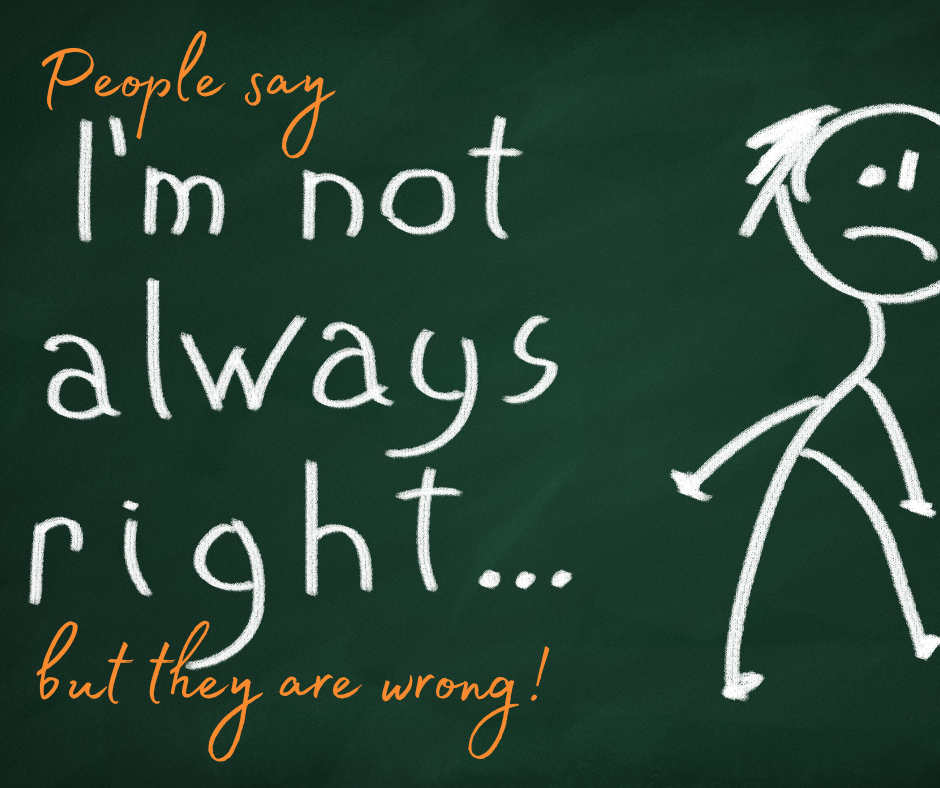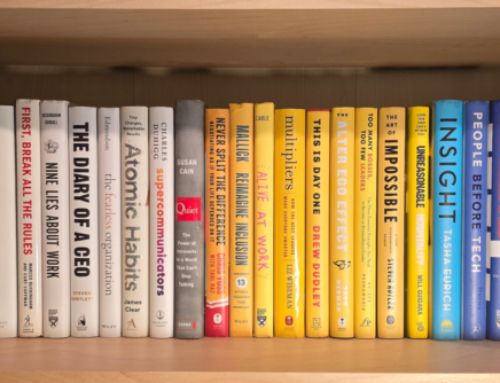I Know I am Right – I Don’t Need More Facts
When is the last time that you felt you were absolutely correct about something (definitely in the right!), only to face the indisputable evidence that you were wrong all along?
I Liken it to The Amazing Race
One of my favorite television programs is The Amazing Race, an adventure reality show in which teams of two race around the world.
The race splits into legs. Each requires teams to deduce clues, navigate foreign areas, interact with locals, perform physical and mental challenges, and travel by various transport options.
Moments often occur when a team member heads off in the wrong direction to face their next challenge, convinced they are correct, of course. Any evidence to the contrary dismissed out of hand.
That evidence is usually hiding in plain sight for those of us viewing the race. We sit on our couch and say to ourselves,
“How could anyone be so daft? The direction sign is obvious!”
Funny How We Forget
I once drove from Banff, Alberta, to Field, British Columbia (81 kilometers; 50 miles). To get to Jasper, I went right past the directional sign for the Icefields Parkway (located just outside of Banff).
I continued my drive in the wrong direction, convinced that I was correct, and saw no need to check my map. Others in the car suggested perhaps we had missed something along the way, but I knew what I was doing.
Or maybe not.
What is Cognitive Dissonance?
Cognitive dissonance is the term coined to express the inner discomfort we feel when, among other things, our views and beliefs are challenged by evidence. In my navigation story, it was a clear and present direction sign that I paid no attention to.
Most of us like to see ourselves as intelligent and wise.
We consider ourselves sensible people with rational judgments who make wise decisions.
Likewise, we dislike thinking of ourselves as flawed or “not knowing.”
That is why, when we mess up, especially on substantial things, our ego feels threatened. Anxiety, embarrassment, regret, shame, or stress are normal reactions to personal failures, no matter how small.
At the very least, we are uncomfortable.
The Two Choices
We recognize and admit that our initial judgments may have been faulty in the first choice.
On the contrary, the second option is denial, where we happily reframe the evidence to suit our needs.
We choose to filter it or ignore it altogether.
That way, we can keep moving on under the soothing premise that we are right all along.
Back On The Road Again
Referencing the Canadian cross country Highway 1 and Phil’s ‘driving disaster,’ let’s use it as an example of what can happen in the workplace.
Perhaps someone is receiving feedback about their impact on a colleague by something they did or said.
But unfortunately, the individual refuses to accept the feedback. They claim instead that it is the other person who was at fault.
“They must have deliberately misinterpreted what was said.”
Some people will claim that the incident didn’t happen; another fabricated it, or a third person must be a fault.
It’s Not Easy Being Wrong
Cognitive dissonance makes us feel uneasy, especially if the gap between our views and behaviors involves something central to our sense of self.
I used to participate in competitive orienteering. I was pretty good at it. The sport involves being accurate in reading and interpreting, among other things, a map.
As you can imagine, realizing that I drove 81 kilometers in the wrong direction didn’t make me feel very good about myself.
This feeling of discomfort, which can be intense, can occur when we behave in ways not aligned with our values.
Our behavior contradicts not just the beliefs we have about the world, but also the beliefs that we have about ourselves.
How to Spot Cognitive Dissonance in Your Life
In our Respect in the Workplace workshops, we start with the ‘values exercise” to help participants build a compass for their decision-making.
When our behaviors do not align with our values, the results influence how we think and feel about ourselves. Facing contradiction within brings us face to face with our self-worth – and self-respect.
- You may engage in behaviors to help relieve the inner feeling of discomfort.
- I could adopt beliefs or ideas to help justify or explain the conflict between my beliefs and behaviors.
- People often blame other people or outside factors
- We hide our beliefs or behaviors from other people to hide the discrepancy and the negative emotions – even ourselves.
The Triumph Dolomite and The Simca
My father once offered to sell me his beautiful and reliable mustard-colored Triumph Dolomite car for £1,300.
I was at a stage in my life when I was trying to make my own decisions and be my own man. Driving around in the car I rode in as a kid in the backseat was not going to happen!
Instead, I bought a Simca, which sported a bright blue metallic paint, and came with a fantastic stereo in it. The price? £1,500.
As life would have it, the new car immediately plagued me with mechanical issues.
Being from France and few UK dealerships able to help, I tackled the project myself. I poured more money into my Simca. A few more thousand pounds later, I agreed to part ways with it, still reluctant to admit that I should have bought my dad’s Triumph.
Even the stereo had stopped working.
Does any of this sound familiar?
Confirmation Bias
To deal with this reluctance to admit we have been wrong, we often seek out information that confirms our existing beliefs.
This is known as confirmation bias, affecting our ability to think critically about a situation. There is a bonus, though – it helps to minimize that feeling of dissonance.
Cognitive dissonance is a deeply ingrained human trait. The more importance we place on our judgments, the more likely we will manipulate any new evidence that calls them into question.
Being Wrong: “Wrongology”
On my soon-to-read list is a marvelous-looking book called “Being Wrong” by Kathryn Schulz.
We learn about how to turn a denial of the facts into acceptance. Then, we can use that information to help others do the same thing. I am eager to learn more.
The author’s first chapter is titled “Wrongology” with the title followed immediately by a brilliant quote by Molière, the French playwright:
“It infuriates me when I am wrong when I know I’m right.”
He likely drove a Simca as well.
I will share what I learned from the book soon.






